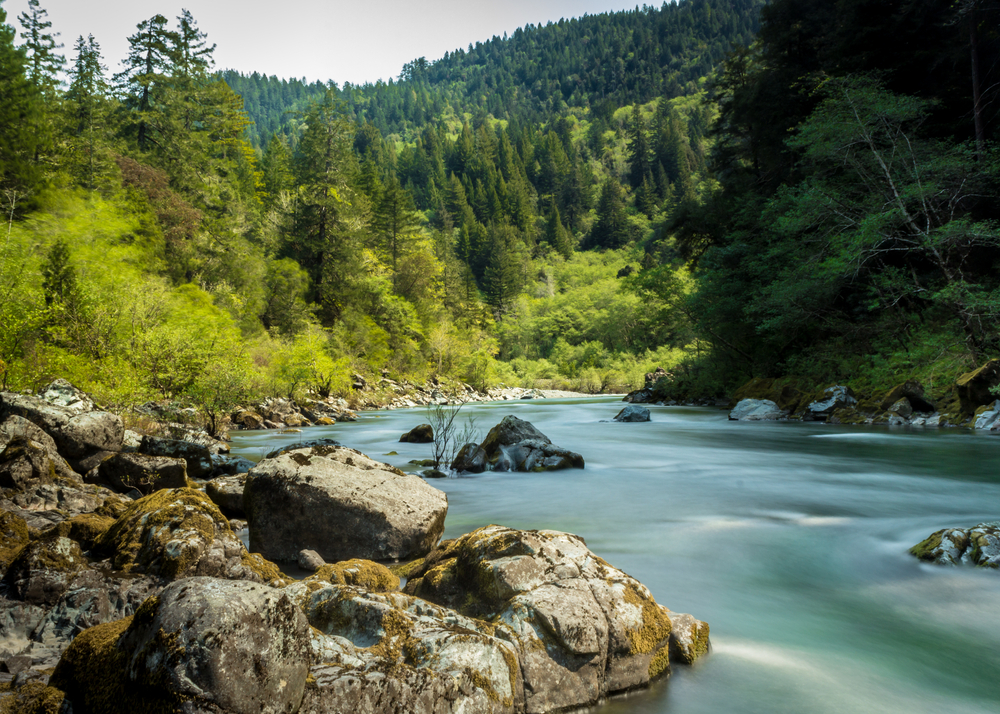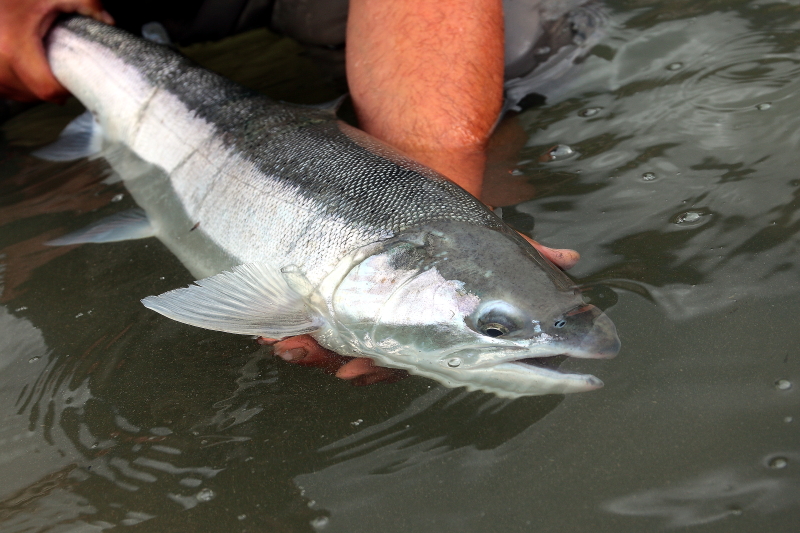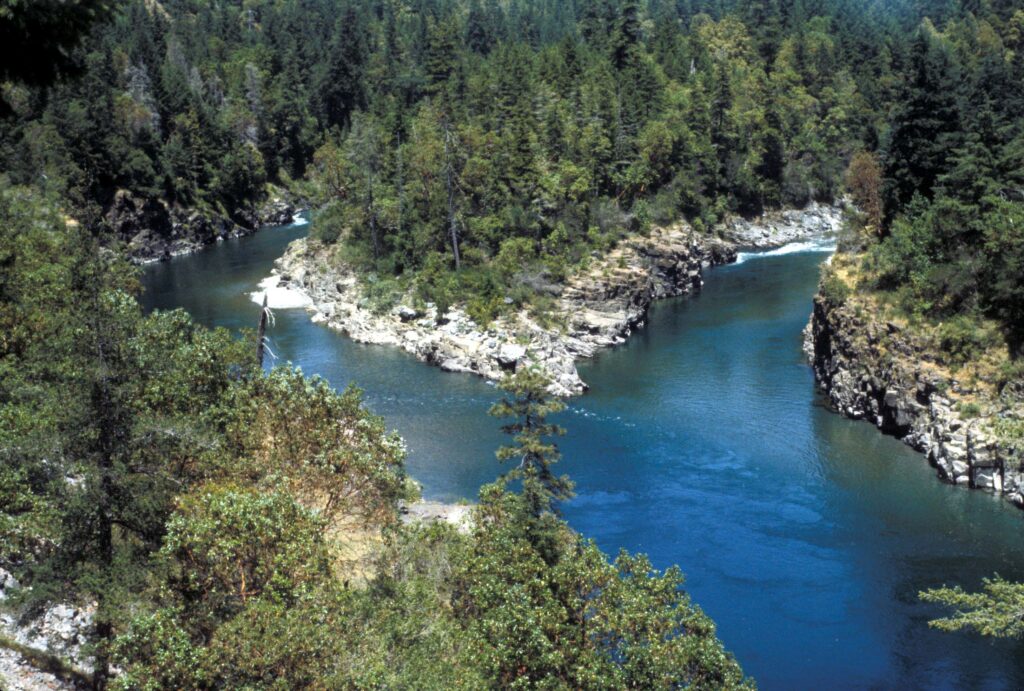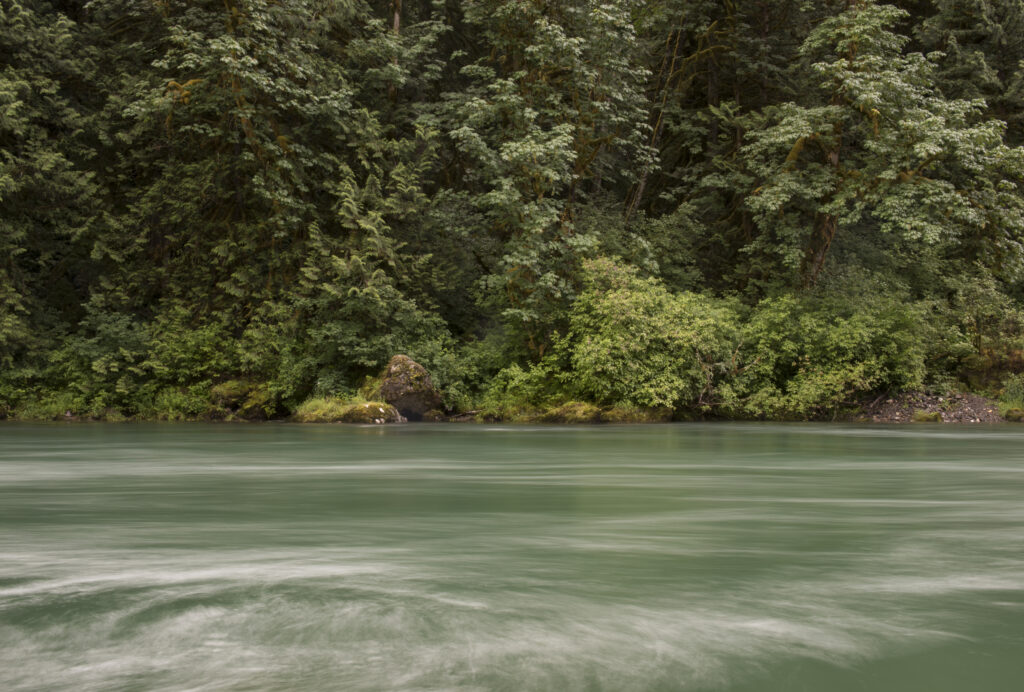
One of the most effective ways we can support wild steelhead stocks is to better protect those habitat areas that steelhead require for spawning and rearing, migration, and thermal refuge. That’s why Wild Steelheaders and Trout Unlimited are supporting three pieces of legislation that would strengthen protections for vital wild steelhead habitat in Oregon.
Two of these bills recently took significant steps toward passage into law.
Oregon Recreation Enhancement Act
On Monday May 17th, the Senate Committee on Energy and Natural Resources passed the Oregon Recreation Enhancement (ORE) Act, sponsored by Senators Ron Wyden and Jeff Merkley, which would better protect key steelhead waters by expanding the Wild Rogue Wilderness Area and by creating the Rogue Canyon Recreation Area in Josephine County and the Molalla Recreation Area in Clackamas County.
This bill also provides stronger safeguards for water quality from mining on rivers in Southwest Oregon, and would help improve landscape resiliency, reduce the risk of extreme wildfire, and promote outdoor recreation.

The ORE Act has garnered bipartisan support from local community leaders, city officials, county commissioners, Tribes, and conservation and sporting groups.
Particularly important are the bill’s protections from hard rock mining on over 100,000 acres of public land near the Kalmiopsis Wilderness Area. In 2016, the USFS and BLM issued a temporary mineral withdrawal for the area; the ORE Act would make that mineral withdrawal permanent and ensure the headwaters of the several Wild and Scenic Rivers that flow from the area remain clean and cold.
Smith River National Recreation Area
The Committee also passed legislation to expand the Smith River National Recreation Area. The Smith, a vital stronghold for wild salmon and steelhead in this region, originates in southern Oregon and connects to the ocean in far northern California, and is the last major undammed river in that state.
This bill supplements the 1990 legislation that protected the watershed in California but stopped at the Oregon border. Under the current bill, 58,000 acres of the North Fork Smith River Watershed, including tributaries which contain Chinook and coho salmon and Coastal Cutthroat trout, will receive new, permanent protections.

The bill would also jumpstart work on an updated recreation plan for the NRA that would factor in the results of studies of streams, fens, wetlands, and potentially vulnerable aquatic habitat.
Dean Finnerty, manager of TU’s Wild Steelhead Initiative, is a longtime resident and guide in the region. “The Wild Rivers Coast and rivers like the Smith are legendary among anglers for their steelhead and salmon fisheries,” said Dean. “This region supports a robust sport fishing economy that is vitally important for many rural communities. Sen. Merkley’s bipartisan Smith River National Recreation Area Expansion Act is a sensible and timely way to honor the sporting heritage of this region and to conserve the cold, clean, fish-filled waters that are the hallmark of this part of America.”
River Democracy Act
As these two bills head to the full Senate for consideration, a third piece of legislation with major implications for wild steelhead conservation still awaits reintroduction in this Congress. The River Democracy Act from Senator Wyden would boost protections for many of Oregon’s anadromous fish strongholds, including the Grand Ronde, North Umpqua, and Sixes Rivers, through new Wild and Scenic River designations.
The original version of this bill would have protected some 4,700 miles of rivers and streams throughout Oregon. After more than a year of feedback, the bill was adjusted to confer new Wild and Scenic designations on 3,215 miles. Fortunately, those river segments with the best habitat for salmon and steelhead remained in the legislation.

The River Democracy Act would help wild steelhead and salmon by establishing half-mile wide buffers on both sides of designated stream segments and build on existing wild and scenic designations by protecting tributaries to those rivers. It also would require federal land managers to assess and mitigate risk of wildfire within Wild and Scenic corridors.
To find out what rivers near you are included in the legislation, click here.
The warming climate is piling on to a century of dam-building and resource extraction in depressing wild steelhead runs, and wild steelhead populations today are well below historic averages in virtually every river system across their native range. There is no time to lose if we want to have wild steelhead in our future. These actions are now more critical than ever: Better protect still-productive habitats and water quality. Manage fisheries conservatively. Invest in science. You can help Wild Steelheaders continue to advocate strongly and effectively for wild steelhead by going here and by staying tuned to our Instagram and Facebook, blog and newsletter.

